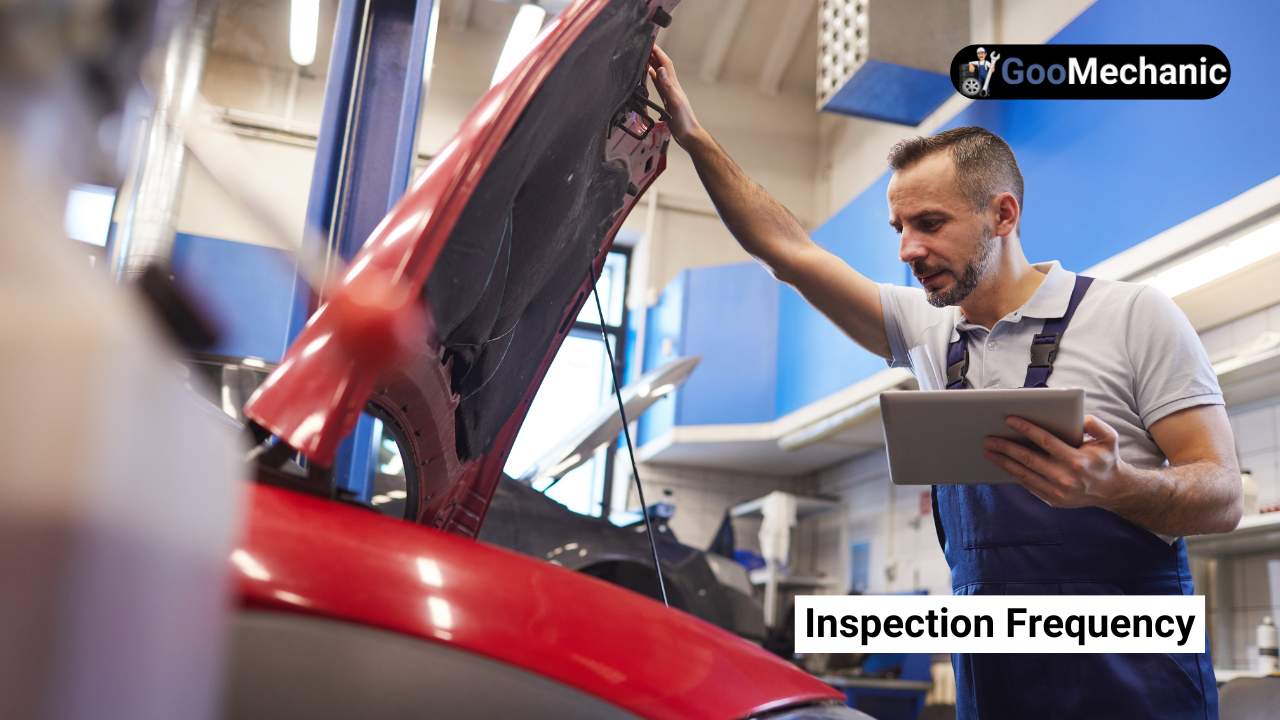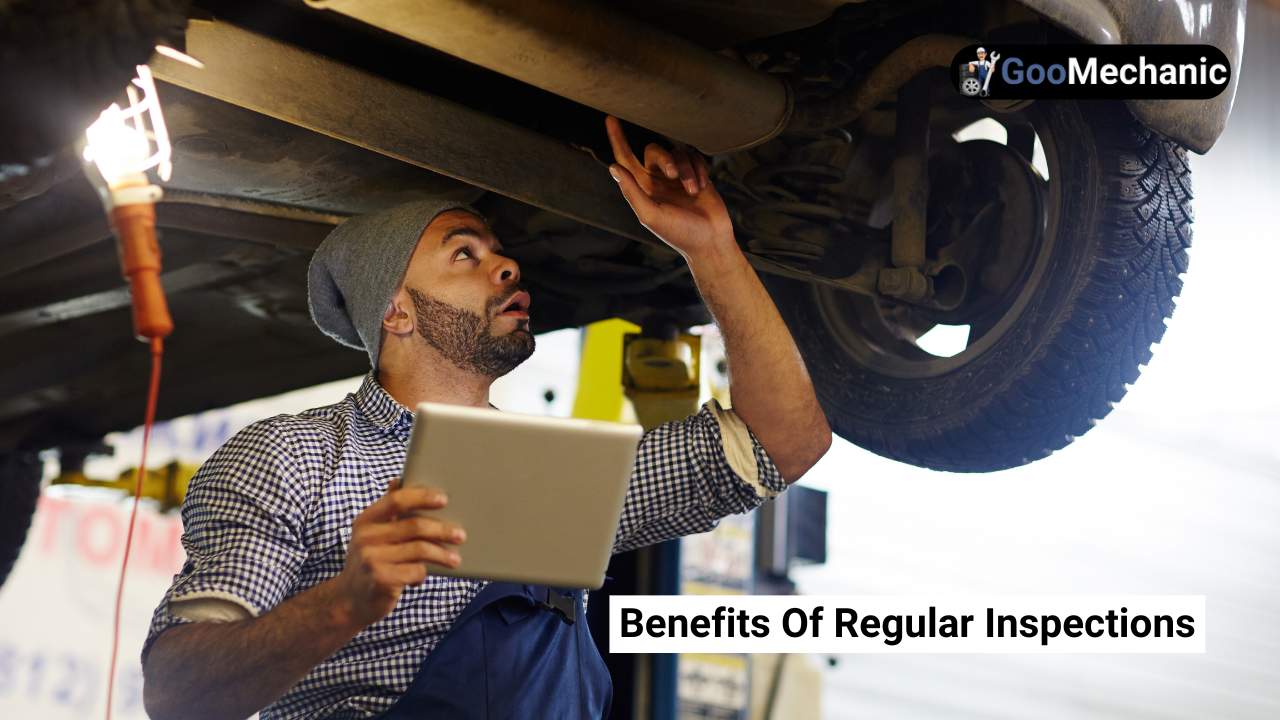Most states require car inspections every one to two years. The exact frequency depends on local regulations.
Regular car inspections are crucial for maintaining vehicle safety and performance. Inspection laws vary across states, so it’s essential to know your local requirements. Inspections typically cover emissions, safety features, and general vehicle condition. Staying compliant ensures your car remains roadworthy and helps avoid fines.
Regular checks can also identify potential issues early, saving you from costly repairs later. Always refer to your state’s Department of Motor Vehicles (DMV) for specific guidelines. Keeping your car in top shape not only ensures your safety but also contributes to a cleaner environment. Make sure to schedule your inspection on time to avoid any inconvenience.
Inspection Frequency

Keeping your car in top shape is essential. Regular inspections ensure safety and performance. But how often should you inspect your car? It depends on several factors like local laws, car type, and usage.
Annual Checks
Many places require an annual car inspection. These checks ensure your car meets safety and emission standards. Inspectors will look at brakes, lights, and other vital parts.
- Brakes
- Lights
- Suspension
- Exhaust system
An annual check helps catch issues early. This prevents costly repairs down the line. Always schedule your annual check on time.
Mileage-based Inspections
Some cars require inspections based on mileage. Mileage-based inspections depend on how much you drive. Common intervals are every 10,000 or 15,000 miles.
During these inspections, mechanics check the engine, transmission, and other systems. This ensures everything runs smoothly.
| Mileage | Inspection Type |
|---|---|
| 10,000 miles | Basic check (fluids, tires) |
| 30,000 miles | Comprehensive check (engine, transmission) |
| 60,000 miles | Major check (brakes, suspension) |
Regular mileage-based inspections help keep your car in good shape. Follow the manufacturer’s recommendations for the best results.
State Regulations
Car inspection rules differ by state. Each state has unique requirements. Knowing your state’s rules helps you stay compliant.
State-by-state Requirements
States set their own inspection rules. Some states require annual inspections. Others have biennial inspections. A few states don’t require any inspections.
| State | Inspection Frequency |
|---|---|
| California | Every 2 years |
| Texas | Every year |
| Florida | No inspection required |
Emissions Testing
Many states require emissions testing. This checks if your car pollutes too much. States with high pollution have stricter rules.
- California: Biennial emissions test.
- New York: Annual emissions test.
- Arizona: Biennial emissions test in some areas.
Always check local rules. This keeps your car road-legal and safe.
New Vs. Used Cars

Understanding the difference between new and used car inspections is crucial. It ensures your vehicle stays safe and roadworthy. Each type of car has unique inspection needs. This guide will help you know when to get your car inspected.
New Car Inspection Timeline
New cars usually come with a manufacturer’s warranty. This often covers the first few years. Most states don’t require inspections on brand-new cars. Typically, you may need an inspection after the first three years. This can vary by state.
- First inspection: After three years
- Subsequent inspections: Annually or bi-annually
Check your state’s requirements for specifics. New cars have fewer issues, so inspections are less frequent.
Used Car Inspection Needs
Used cars need more frequent inspections. They may have more wear and tear. States often require annual inspections for these vehicles. Regular checks ensure safety and reliability.
| Inspection Type | Frequency |
|---|---|
| Emissions | Annually |
| Safety | Annually |
Used cars may also need more in-depth inspections. These checks look at brakes, tires, and other critical parts.
- Brakes
- Tires
- Lights
- Steering
Regular inspections help identify potential issues early. This can save money on repairs and keep you safe on the road.
Signs Your Car Needs Inspection
Regular car inspections are crucial for safety and performance. Knowing the signs your car needs inspection can prevent major issues. Here are key indicators your car needs a check-up.
Warning Lights
Dashboard warning lights are a clear sign. If any warning light appears, it means your car needs attention. The check engine light is the most common warning. Other lights include oil pressure, battery, and brake system. Ignoring these lights can lead to costly repairs.
Unusual Noises
Unusual noises are another sign. Squealing brakes or grinding gears indicate a problem. Listen for rattles, clunks, or hissing sounds. These noises often mean parts are worn or damaged.
| Noise Type | Possible Issue |
|---|---|
| Squealing Brakes | Worn brake pads |
| Grinding Gears | Transmission problems |
| Rattling | Loose parts |
| Hissing | Fluid leaks |
Regular inspection can catch these problems early. This keeps your car running smoothly and safely.
Benefits Of Regular Inspections

Regular car inspections offer numerous advantages. They keep your vehicle in top shape. They also ensure safety and save money in the long run. Let’s dive into the key benefits.
Safety Assurance
Regular inspections ensure your car is safe to drive. Inspectors check brakes, tires, and lights. They look for potential hazards. This reduces the risk of accidents. A well-maintained car keeps you and your family safe.
| Inspection Component | Safety Benefit |
|---|---|
| Brakes | Prevents brake failure |
| Tires | Ensures proper traction |
| Lights | Improves visibility |
Cost Savings
Regular inspections can save you money. Small issues get fixed early. This prevents bigger, costlier repairs. Routine checks extend your car’s life. You avoid expensive breakdowns.
- Early Detection: Fix minor issues before they grow.
- Extended Lifespan: Keep your car running longer.
- Lower Repair Costs: Avoid major repairs by maintaining regularly.
Investing in inspections means fewer surprises. You can budget for smaller repairs. This keeps your car in good condition without breaking the bank.
DIY Inspection Tips
Conducting a DIY car inspection can save time and money. Regular checks help identify issues early. Learn some simple tips to keep your car in top shape.
Basic Checks
Start with the tires. Ensure they have enough tread and are properly inflated. Check for any visible damage or wear.
Inspect the lights. Turn on your headlights, brake lights, and indicators. Replace any burnt-out bulbs.
Check the fluid levels. Open the hood and check oil, coolant, and brake fluid. Top up if necessary.
Listen for unusual noises. Turn on the engine and listen for any strange sounds. These could indicate underlying issues.
When To Seek Professional Help
Some issues require a professional’s expertise. If you notice any of these signs, visit a mechanic:
- Dashboard warning lights stay on
- Strange noises that persist
- Fluid leaks under the car
- Unusual vibrations or handling issues
A professional can diagnose and fix complex problems. Regular professional inspections ensure your car remains safe and roadworthy.
Common Inspection Failures
Car inspections are essential for maintaining safety on the road. Many vehicles fail inspections due to common issues. Identifying these issues can help you avoid them.
Brake Issues
Brake problems are a frequent reason for inspection failures. The brakes are vital for your safety. Inspectors often check for brake pad wear and rotor condition.
- Worn Brake Pads: Brake pads wear out over time. They need replacement to ensure effective braking.
- Rotor Condition: Rotors should be smooth. Grooves or warping can lead to failure.
Regular brake checks can prevent these issues. Always listen for unusual noises when braking. Squeaking or grinding sounds indicate problems.
Tire Condition
Tire condition is another common inspection failure. Tires must be in good shape to pass inspection. Inspectors look for tread depth and tire damage.
| Issue | Description |
|---|---|
| Low Tread Depth | Tires need enough tread to grip the road. Low tread increases stopping distance. |
| Tire Damage | Inspectors check for cuts, punctures, and bulges. Any damage can lead to failure. |
Use a tread depth gauge to check your tires. Replace tires that show damage or wear. Proper tire maintenance ensures safety and compliance.
Preparing For An Inspection
Getting your car ready for inspection can seem overwhelming. Preparation ensures a smooth process and avoids unnecessary delays. Follow these steps to get your vehicle inspection-ready.
Documentation Needed
Before heading to the inspection station, gather all necessary documents. This will save time and ensure a hassle-free experience.
- Vehicle Registration: Ensure your car’s registration is current.
- Insurance Proof: Carry proof of valid car insurance.
- Driver’s License: Have your valid driver’s license with you.
- Previous Inspection Report: Bring the last inspection report if available.
Pre-inspection Checklist
Check the following items before your car inspection. This will help you pass the inspection on the first attempt.
- Lights: Ensure all lights, including headlights, taillights, and indicators, work properly.
- Brakes: Test the brakes for responsiveness and check brake fluid levels.
- Tires: Check tire tread depth and ensure proper inflation.
- Windshield Wipers: Ensure wipers are functioning and fluid is filled.
- Horn: Test the horn to ensure it works.
- Exhaust System: Check for any leaks or unusual noises.
By preparing these documents and checking your car, you can ensure a smooth inspection process. This will save you time and stress.
Frequently Asked Questions
How Long Is An Inspection Good For In Texas?
In Texas, a vehicle inspection is valid for 90 days. Make sure to renew it before it expires.
Is Texas No Longer Requires Inspection?
No, Texas still requires vehicle inspections. Annual safety inspections are mandatory for most vehicles registered in the state.
What Are The Requirements For A Texas Vehicle Inspection?
Texas vehicle inspection requires a valid ID, proof of insurance, and a working horn, lights, brakes, and tires.
Do You Have To Get Your Car Inspected In Texas In 2024?
Yes, you must get your car inspected in Texas in 2024. It’s required for vehicle registration.
Conclusion
Regular car inspections are crucial for safety and performance. Adhering to local regulations ensures your vehicle remains in top condition. Remember to schedule inspections based on your car’s age and usage. Keeping up with inspections can save you time and money in the long run.
Stay proactive for a smoother driving experience.
Read More: Whats the Difference between 5W-30 And 5W-40